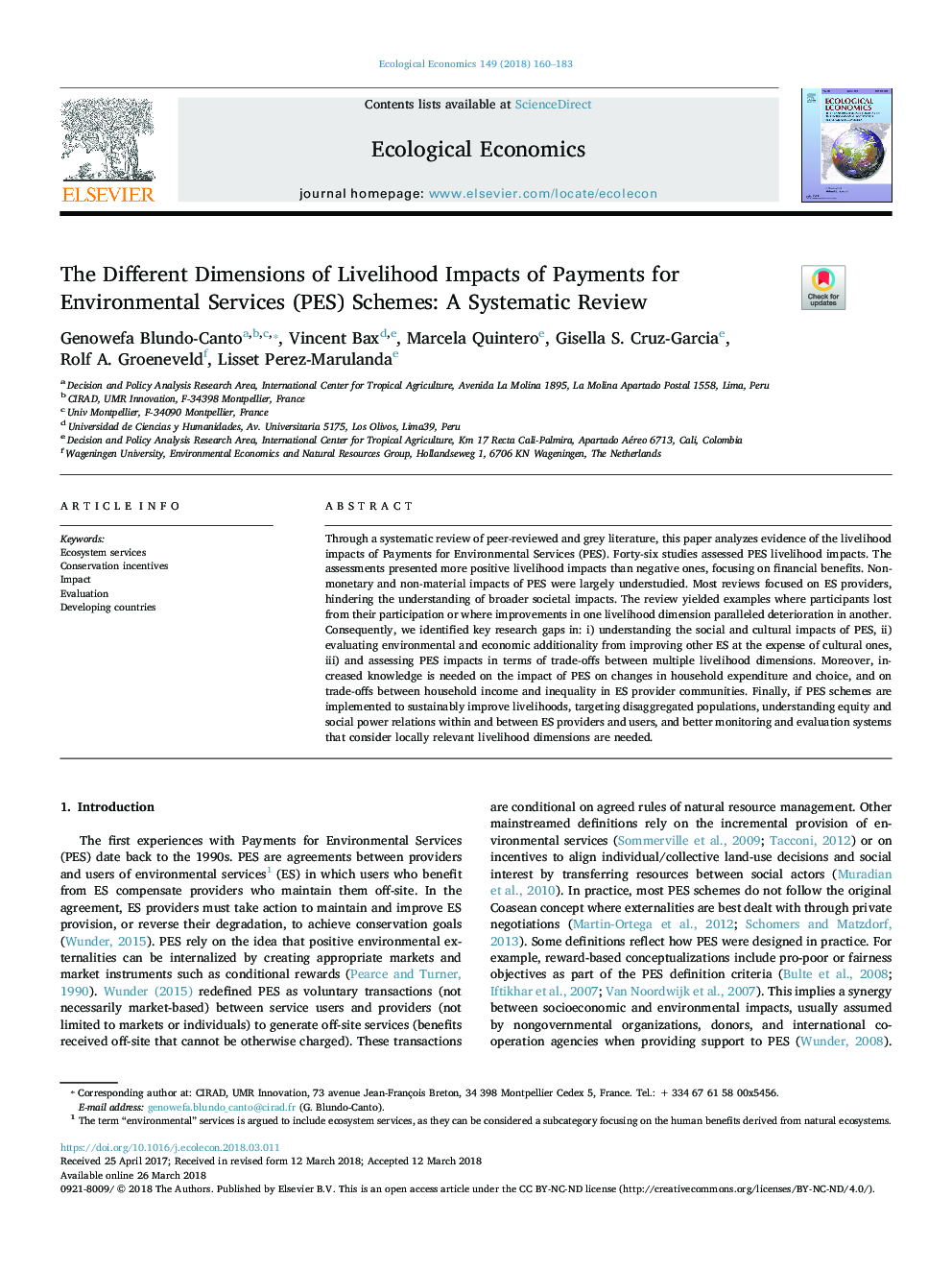| Article ID | Journal | Published Year | Pages | File Type |
|---|---|---|---|---|
| 7344121 | Ecological Economics | 2018 | 24 Pages |
Abstract
Through a systematic review of peer-reviewed and grey literature, this paper analyzes evidence of the livelihood impacts of Payments for Environmental Services (PES). Forty-six studies assessed PES livelihood impacts. The assessments presented more positive livelihood impacts than negative ones, focusing on financial benefits. Non-monetary and non-material impacts of PES were largely understudied. Most reviews focused on ES providers, hindering the understanding of broader societal impacts. The review yielded examples where participants lost from their participation or where improvements in one livelihood dimension paralleled deterioration in another. Consequently, we identified key research gaps in: i) understanding the social and cultural impacts of PES, ii) evaluating environmental and economic additionality from improving other ES at the expense of cultural ones, iii) and assessing PES impacts in terms of trade-offs between multiple livelihood dimensions. Moreover, increased knowledge is needed on the impact of PES on changes in household expenditure and choice, and on trade-offs between household income and inequality in ES provider communities. Finally, if PES schemes are implemented to sustainably improve livelihoods, targeting disaggregated populations, understanding equity and social power relations within and between ES providers and users, and better monitoring and evaluation systems that consider locally relevant livelihood dimensions are needed.
Related Topics
Life Sciences
Agricultural and Biological Sciences
Ecology, Evolution, Behavior and Systematics
Authors
Genowefa Blundo-Canto, Vincent Bax, Marcela Quintero, Gisella S. Cruz-Garcia, Rolf A. Groeneveld, Lisset Perez-Marulanda,
